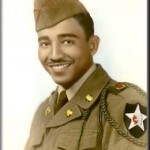Cardillo Murder Mystery: What Does Charlie Rangel Know?
 Representative Charles Bernard Rangel has enjoyed a long career serving the residents of the Fifteenth District in Harlem. He was born there in 1930 to a seamstress mother and an absent father. The United States Army was his ticket out of poverty. Awarded a Purple Heart and Bronze Star for valor in the Battle of Kunu-ri in the Korean War, he worked as a federal prosecutor and a member of the State Assembly. In 1971, he defeated a Harlem giant, Adam Clayton Powell Jr., for a seat in the House of Representatives. He’s been there ever since, serving twenty-one terms. A black man who fought his way up in the white man’s world, Charlie Rangel is no pushover. Today, at 81, he’s in the fight of his political life against State Senator Adriano Espaillat, who is seeking to ride the changing demographics of the district into Congress.
Representative Charles Bernard Rangel has enjoyed a long career serving the residents of the Fifteenth District in Harlem. He was born there in 1930 to a seamstress mother and an absent father. The United States Army was his ticket out of poverty. Awarded a Purple Heart and Bronze Star for valor in the Battle of Kunu-ri in the Korean War, he worked as a federal prosecutor and a member of the State Assembly. In 1971, he defeated a Harlem giant, Adam Clayton Powell Jr., for a seat in the House of Representatives. He’s been there ever since, serving twenty-one terms. A black man who fought his way up in the white man’s world, Charlie Rangel is no pushover. Today, at 81, he’s in the fight of his political life against State Senator Adriano Espaillat, who is seeking to ride the changing demographics of the district into Congress.
All this may go some way to explaining the backstory to one of the enduring mysteries of Rangel’s career: precisely what he did and said on the morning of April 14, 1972, in Louis Farrakhan’s Mosque #7 in Harlem, as Patrolman Phillip Cardillo lay dying. The episode is back in the news with a controversy over a modest attempt to honor Cardillo by naming a small street in the precinct he served “Phillip Cardillo Way.” Last week, the website DNAinfo broke the news that the putative deciding body in the matter, Community Board 10, has declined to approve the street naming, saying it might “open old wounds” and that they wanted a letter from local imams approving the move. Never mind that the only “wounds” suffered were the ones inflicted on Cardillo and other cops on the scene. Or that the Harlem imams have already given their tacit approval to the plan. The New York Times, Daily News and Fox followed up.
When CBS reporter Tony Aiello asked Rangel if he supported naming a street for Cardillo, the congressman not only dodged the question but launched a weird denunciation of the newsman, saying “this is an opportunity to show that you’re much smarter than your question.”
“The past is never dead,” Faulkner famously said. “It’s not even past.” Today, the NYPD’s relationship with mosques and Muslims is again news. Forty years ago, Cardillo and three other patrolmen were lured into an apparent ambush in Mosque #7 by a fake “officer in distress” call. In the ensuing melee, all four officers were badly beaten and Cardillo was shot. Rangel–a newly minted congressman for the district–and mosque leader Louis Farrakhan were quickly on the scene. So was Albert Seedman, the legendary NYPD Chief of Detectives.
Outside, a riot was brewing. It was an evil season in New York, a time of Weatherman and the Black Liberation Army, urban terrorists, cop killers and bombers. At the mosque, the police had sixteen suspects in the basement, almost certainly the shooter among them. Seedman encountered Rangel and Farrakhan in the basement. For nearly forty years, Seedman kept silent about the events of that day. Last year, he spoke to writer Peter Hellman.
According to Hellman’s account, Rangel told Seedman that a senior police official “wanted to mosque to be cleared of cops at once.” Hellman reports, “The edict was seconded by Louis Farrakhan.”
Rangel then issued a veiled threat to Seedman. “That crowd upstairs, they know you’re down here,” Seedman remembers Rangel saying, “I don’t know how long it will be before they come down. If you don’t leave now, I can’t guarantee your personal safety.”
Seedman says he struck a deal with Rangel, with Farrakhan standing at their side: he would release the sixteen suspects to Rangel if the congressman promised to deliver them to the 24th Precinct for questioning later that day. Rangel agreed. The NYPD withdrew from the mosque. But Rangel and the suspects never showed up.The result? No crime scene, no witnesses, no case.
Rangel has denied this version of events, but never offered his own. He did not respond to my interview requests. The killer of Phillip Cardillo walked free. To the police rank and file, it is the greatest scandal in NYPD history — a story of murder, betrayal and cover-up.
No wonder Charlie Rangel doesn’t want to talk about it.
Maybe Adriano Espaillat does.
Read the New York Times story here.
Read the Daily News editorial here.
Read the Fox News story here.

